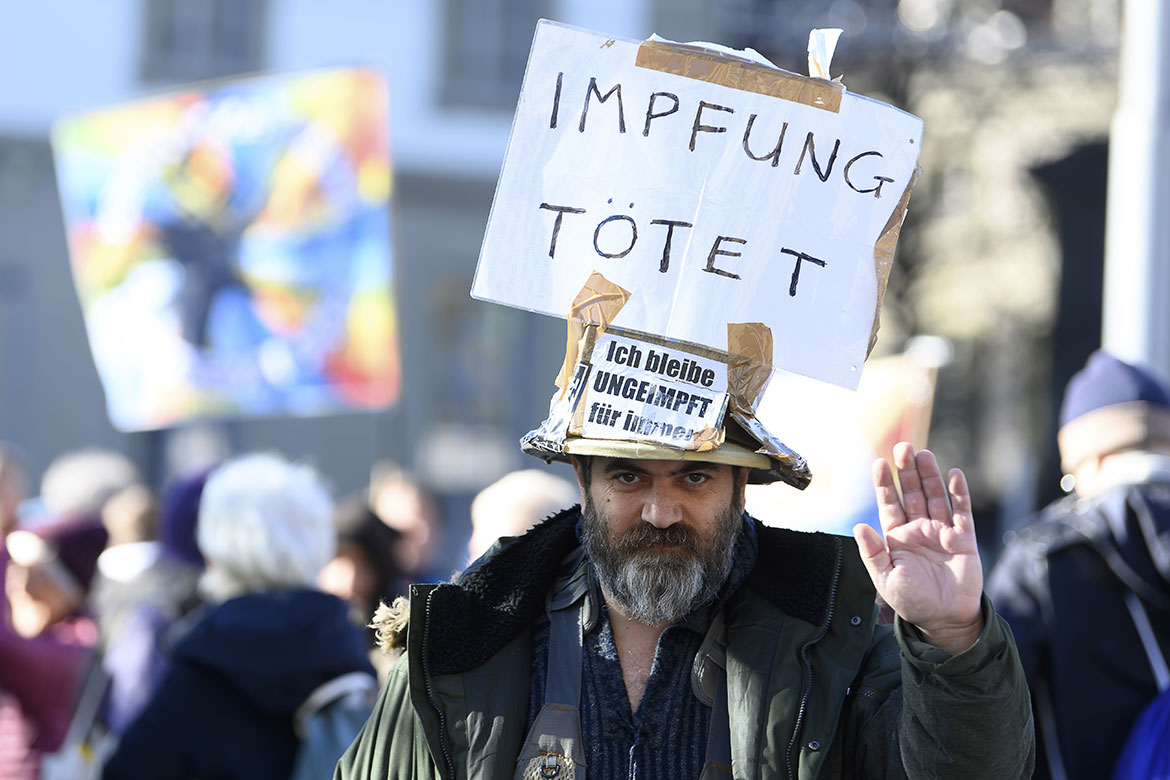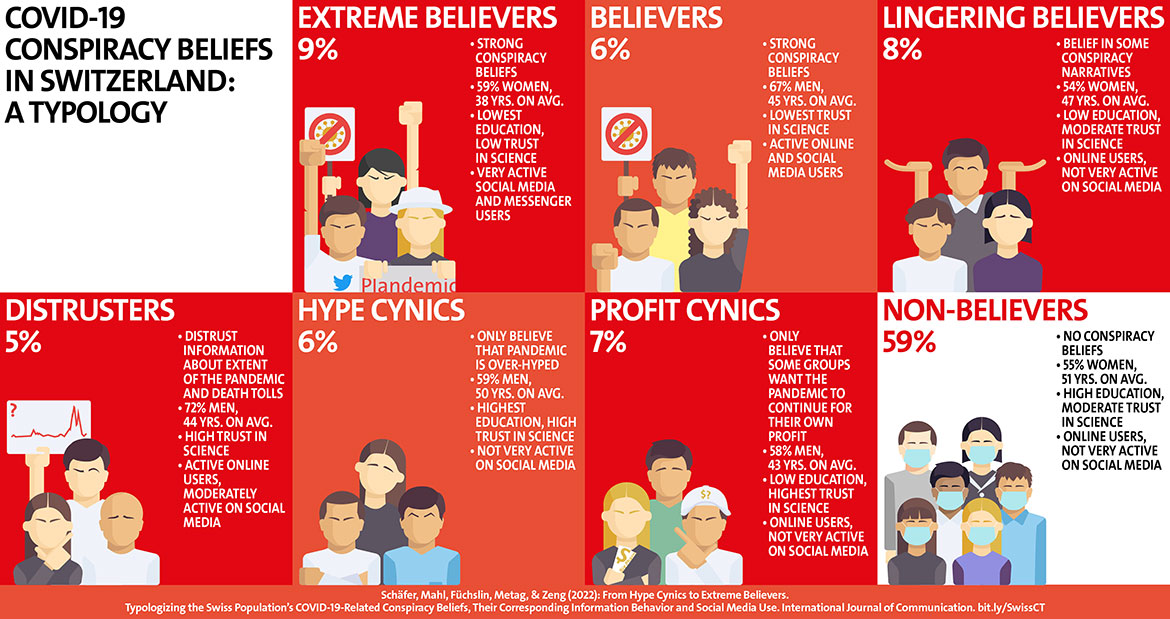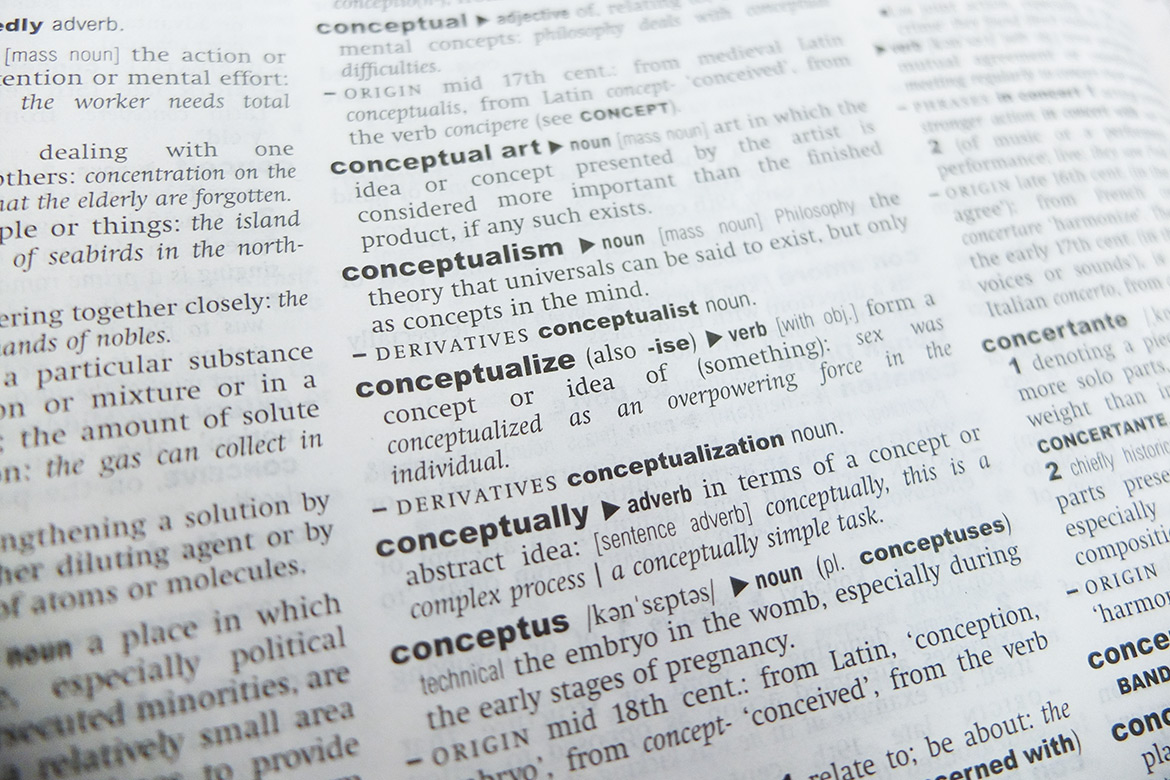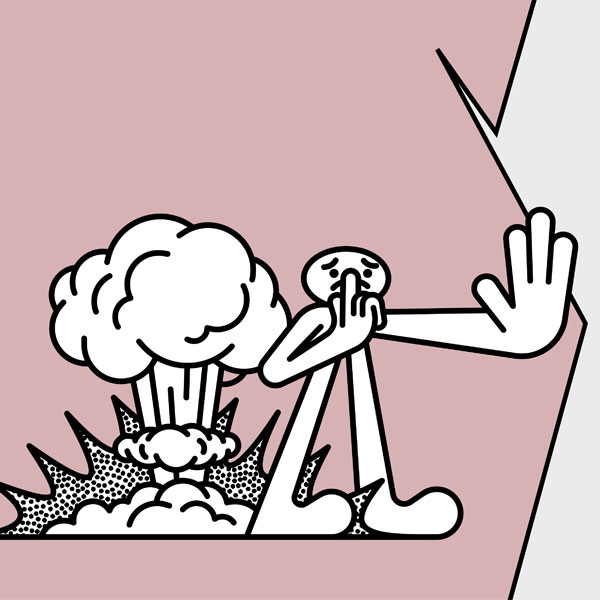SOCIETY
The broad spectrum of conspiracy theories
Some 40 percent of the Swiss population believes in certain aspects of Covid conspiracy theories. But they can’t all be lumped together. A Swiss survey has now identified six different types, from mild sceptics to extreme believers.

From ‘hype cynics’ to those who believe the pandemic was planned by societal elites – not all Covid sceptics are the same. Photo: Anthony Anex/Keystone
Conspiracy theories fell on fertile ground during the Covid-19 pandemic. Switzerland is a country where misinformation is generally less likely to gain a foothold than is the case elsewhere. Nevertheless, researchers at the University of Zurich and the research institute ‘Mediapulse’ have found that more than 40 percent of the Swiss population is inclined to believe conspiracy narratives. There is a caveat, according to the communication scientist Daniela Mahl: “Not everyone agrees with all these ideas to the same extent. They are by no means a homogeneous group”.
Together with the ‘Science Barometer Switzerland’, they carried out an online survey of 1,000 people. Their aim was to find out both what people knew about the coronavirus, and what their attitudes were towards it. They have now identified six different types of conspiracy sympathiser. The largest and most radical group is made up of ‘extreme believers’. One in ten people in Switzerland believes that the number of Covid deaths has been exaggerated; this group is also liable to doubt the very existence of the virus, and tends to the opinion that the pandemic was planned by a societal elite of some kind. At the more moderate end of the spectrum are the ‘hype cynics’ and the ‘profit cynics’. Neither of these two groups shares the extreme convictions of the aforementioned 10 percent. But the hype cynics believe that the pandemic has been exaggerated, while the profit cynics believe that certain people are profiting from the crisis and thus have a vested interest in it continuing.
“Understanding this can help us to target appropriate communication strategies more precisely”, says Mahl. Extreme conspiracy believers are unlikely to be receptive to being ‘educated’ through TV or newspapers – while they might consume established media, they are also likely to mistrust them. But it could be possible to reach the people close to them, as well as those groups whose beliefs are less extreme. Conspiracy theories can have serious consequences for public health. Those who believe in them usually consider preventive measures to be exaggerated or superfluous – whether it’s wearing masks, keeping social distance or getting vaccinated.
According to a representative survey, conspiracy believers can be divided into six groups. | Illustration: Schäfer et al. (2022).




